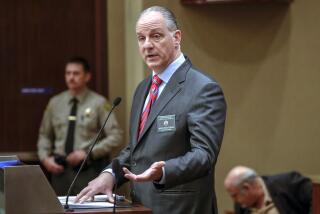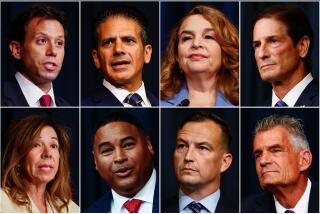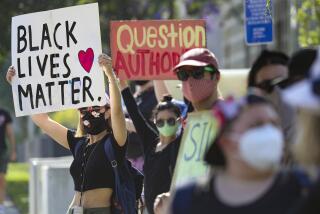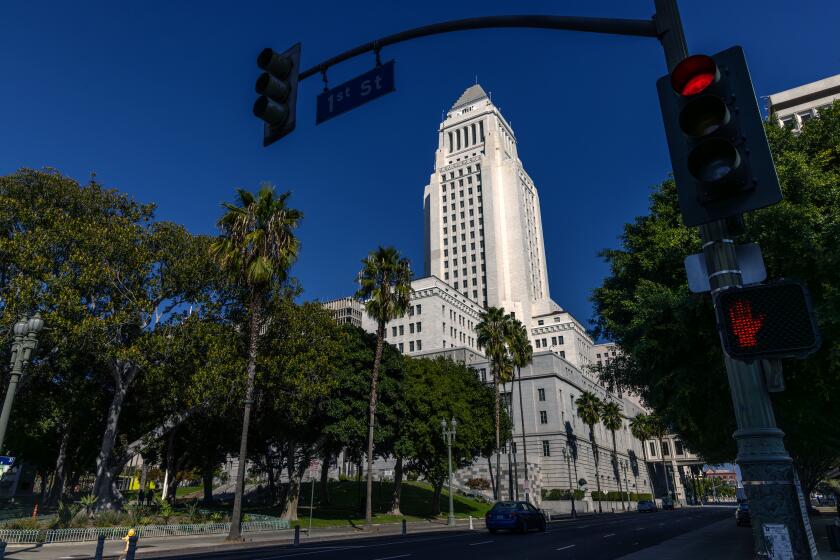The D.A.’s spotlight
It’s hardly news to any veteran of Southern California government that agencies and boards all too often take their public responsibilities all too lightly. Overzealous officials cut off public comment, meet out of public view, falsely invoke the attorney-client privilege or confer through aides rather than openly. And that’s just another week for the Los Angeles County Board of Supervisors.
What is news is that the Los Angeles County district attorney’s office takes these violations seriously. As reported by The Times’ Jack Leonard, officials in the D.A.’s office have in recent years rather regularly bombarded local governments with warnings that it is their responsibility to comply with the Brown Act, the 1953 California law that requires public agencies to conduct their business in public. Some officials don’t like the law -- they say it makes their work more burdensome -- but that’s too bad. If they want to make the case for reducing their accountability and removing themselves from public scrutiny, they’re free to make it and to try to have the law amended. Meantime, they’re expected to obey.
In that spirit, Dist. Atty. Steve Cooley and his staff have sent out scores of warnings to boards and commissions and committees across the county, reminding them of the law’s requirements and its penalties -- in theory, an intentional violation of the act can land a public official in jail. Sadly, that’s rarely the case. Rather than lock up violators, prosecutors in Cooley’s office have resorted to what they call “knock-it-off letters,” sharply worded missives that cite the law and alert officials to violations. That hasn’t always made the district attorney’s office popular in local government circles. Lancaster Mayor R. Rex Parris, for instance, did not appreciate it much when prosecutors chided him for holding a barbecue at his house and inviting members of the City Council and would-be city commissioners. But the law prevents gatherings of a majority of an elected body without public notice and openness. There’s no exemption for barbecues.
Cooley’s office still hasn’t prosecuted anyone for these violations, and we hope he’ll consider that route, especially in jurisdictions where multiple offenses would bolster the case that the act is being systematically and deliberately circumvented. Until then, the words of Susan Chasworth, a prosecutor who chastised El Segundo officials for cutting off a contentious public speaker, are worth savoring: “El Segundo public officials are servants of the people -- all of the people -- whether they hold conflicting opinions or not.” Hear, hear.
More to Read
More to Read
More to Read
A cure for the common opinion
Get thought-provoking perspectives with our weekly newsletter.
You may occasionally receive promotional content from the Los Angeles Times.












